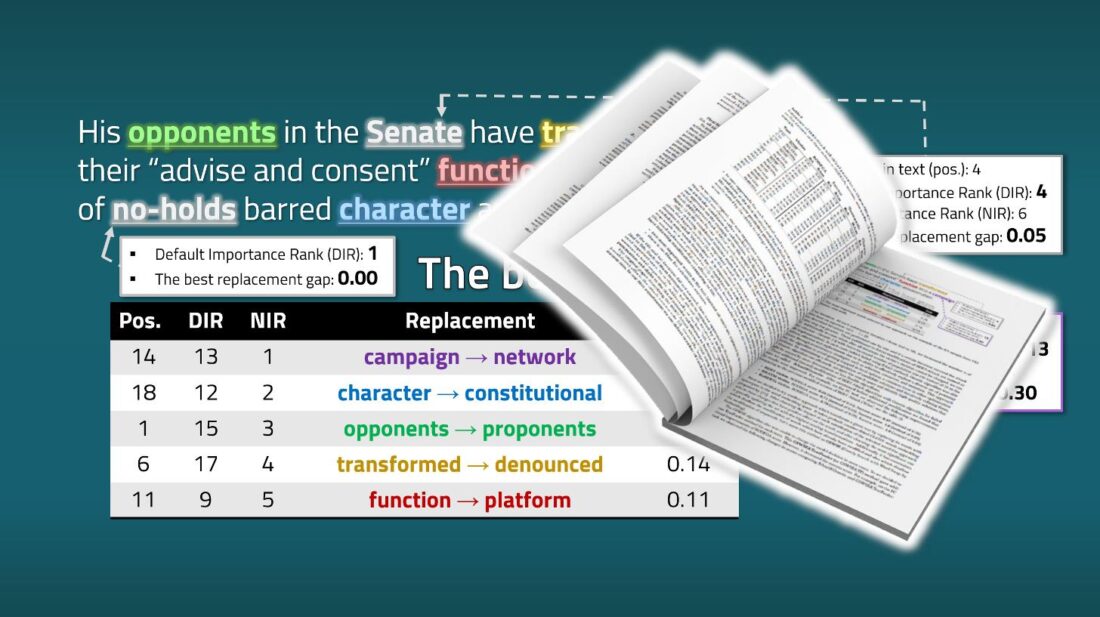Combining multiple attack methods for effective adversarial text generation

The competition was organized as part of the international conference CLEF 2024 (Conference and Labs of the Evaluation Forum). The aim of the competition was to verify the robustness of popular text classification approaches used for credibility assessment problems. The task of the competition participants was to create adversarial examples – that is, to modify texts in such a way that the classification algorithms changed their decision to the opposite, but without changing the meaning of the text. The challenge was that the texts had to be modified in such a way as not only to change the decision of each of the three different classifiers (based on the BERT, BiLSTM and RoBERTa models) on each of over 2000 text examples, but also to ensure a minimum number of changes to symbols (words) in the texts and maximum preservation of their semantic meaning. In addition, the task included texts from 5 different problem areas: assessing news bias, detecting propaganda, fact-checking, detecting rumors and COVID-19-related disinformation.
The approach described in the article can help improve machine learning algorithms that are used within various websites (e.g. social media) to filter content, in particular to detect misleading, harmful or illegal texts. Authors of the publication: Dr. Włodzimierz Lewoniewski, Dr. Piotr Stolarski, Dr. Milena Stróżyna, Dr. Elżbieta Lewańska, Aleksandra Wojewoda, Ewelina Księżniak, Marcin Sawiński.
It is worth recalling that this year, scientists from our Department took first place not only in the international competition in the area of information credibility, but also in the area of early risk prediction on the Internet. In addition, in 2023, the OpenFact project team took first place in the “CLEF-2023 CheckThat! Lab” competition – the best method for detecting sentences in English that require verification due to the possibility of misleading.
Department of Information Systems is currently implementing the OpenFact research project, within which it is developing tools for automatic detection of fake news in Polish. In July 2024, the results of the OpenFact project were rated as the best in Poland by National Center for Research and Development for the second year in a row. Victory in the prestigious “CheckThat!” competition confirms that the achievements of our team are important on a global scale and that the methods developed by the OpenFact team achieve equally high effectiveness in other languages.
The OpenFact project is financed by the National Center for Research and Development under the INFOSTRATEG I program “Advanced information, telecommunications and mechatronic technologies”.




